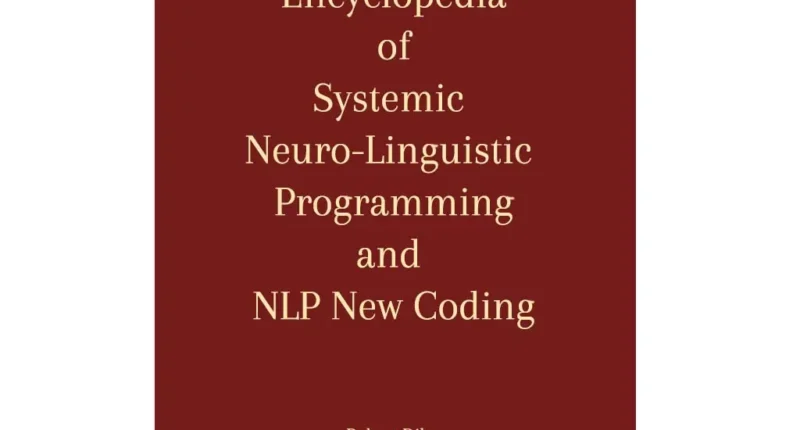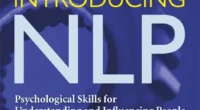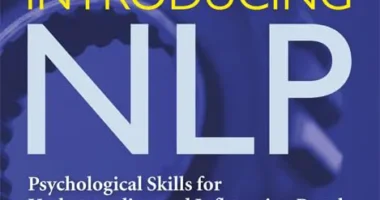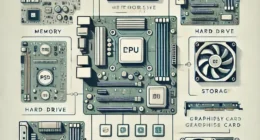Neuro-Linguistic Programming (NLP) is a multifaceted approach to personal development, communication, and behavioral change, which has grown significantly since its inception. Encyclopedia of Systemic Neuro-Linguistic Programming and NLP New Coding is a comprehensive text authored by two of the field’s pioneers, Robert Dilts and Judith DeLozier. This book serves as a thorough guide to NLP’s systemic and “new coding” approaches, which focus on practical applications in real-world settings.
Table of Contents
- About the Authors – Judith DeLozier
- Encyclopedia of Systemic Neuro-Linguistic Programming and NLP New Coding – Structure and Content
- Encyclopedia of Systemic Neuro-Linguistic Programming and NLP New Coding – Key Features and Innovations
- Encyclopedia of Systemic Neuro-Linguistic Programming and NLP New Coding – Benefits and Limitations
- Conclusion
About the Authors – Judith DeLozier
Robert Dilts is a prominent NLP trainer, researcher, and developer who has contributed extensively to the field. Known for developing applications in health, learning, and organizational contexts, Dilts has always sought to expand the horizons of NLP. Judith DeLozier, a longtime collaborator and NLP practitioner, has significantly impacted the field with her expertise in cultural and somatic components of NLP. Their collaboration brings depth and insight into the theoretical and practical elements of NLP.
Encyclopedia of Systemic Neuro-Linguistic Programming and NLP New Coding – Structure and Content
The book is designed as an encyclopedia, offering a detailed, alphabetically organized overview of NLP techniques, terminologies, and applications. Readers will find clear explanations and examples of foundational concepts, such as anchoring, reframing, and submodalities, along with entries that delve into the emerging “New Coding” techniques. These “New Coding” models, developed by Dilts and DeLozier, emphasize systemic thinking and incorporate holistic elements like body posture and awareness, making NLP more adaptable to various personal and professional contexts.
This text goes beyond traditional NLP to include various systemic perspectives, highlighting the dynamic interplay between language, behavior, and neurological processes. This shift towards “new coding” moves NLP into a broader realm, connecting it with other fields like cognitive science, emotional intelligence, and leadership.
Encyclopedia of Systemic Neuro-Linguistic Programming and NLP New Coding – Key Features and Innovations
- Comprehensive Scope: The encyclopedia covers a wide range of topics, from the basics of NLP to advanced techniques in systemic thinking and behavior modeling. It is designed for both newcomers and seasoned practitioners, offering a reference that addresses all levels of expertise.
- Systemic Perspective: One of the book’s core innovations is its systemic approach. Dilts and DeLozier encourage readers to view individuals as parts of larger systems—be it families, teams, or organizations. This perspective fosters more robust, lasting change by understanding patterns and interactions within these systems.
- Embodiment and Somatic Awareness: The book highlights the importance of physical awareness in personal transformation. Techniques like “somatic syntax” are explored, offering readers tools to integrate physical posture, movement, and awareness into their NLP practices.
- Practical Applications: True to NLP’s practical nature, the encyclopedia includes numerous examples, exercises, and case studies that demonstrate how these techniques can be applied in everyday life and professional settings, particularly in coaching, therapy, and leadership.
Encyclopedia of Systemic Neuro-Linguistic Programming and NLP New Coding – Benefits and Limitations
This encyclopedia is a valuable resource for NLP practitioners, therapists, coaches, and anyone interested in understanding how language and neurological processes influence behavior. Its systemic perspective encourages a holistic view of individuals and their interactions, which can foster meaningful change in personal and professional settings.
However, the dense nature of the material may make it overwhelming for beginners without a background in NLP. The encyclopedia format, while thorough, may require a slower pace for readers unfamiliar with NLP concepts.
Conclusion
Encyclopedia of Systemic Neuro-Linguistic Programming and NLP New Coding is a cornerstone work that enhances the field of NLP with its systemic and holistic approaches. Robert Dilts and Judith DeLozier have crafted an invaluable resource for understanding and applying NLP in complex, dynamic environments. For anyone interested in deepening their NLP knowledge or exploring new frontiers in human behavior and communication, this book is a must-read.









